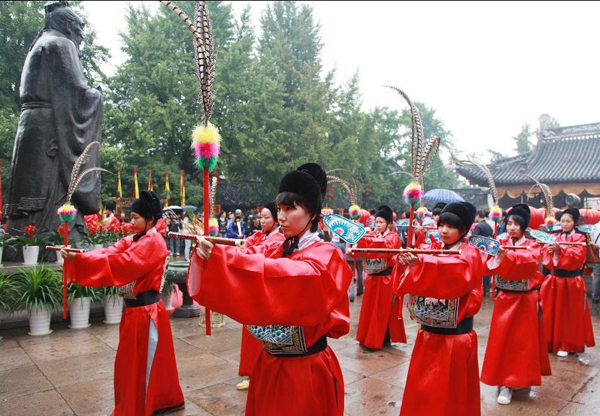 |
|
A ceremony is held to mark the 2,564th birthday anniversary of Confucius in Nanjing, capital of east China's Jiangsu Province, today. The thinking of Confucius (551-479 BC), or Confucianism, became the cornerstone of traditional Chinese society and endures today. During the Han Dynasty (206 BC-AD 220) it was the official state ideology.
|
Confucius, China’s greatest philosopher, educator and thinker, was born some 2,500 years ago and his birthday will be celebrated on October 1, the 27th day of the eighth month on the lunar calendar.
The thinking of Confucius (551-479 BC), or Confucianism, became the cornerstone of traditional Chinese society and endures today. During the Han Dynasty (206 BC-AD 220) it was the official state ideology.
Confucius emphasized personal and governmental morality, correct social relationships and forms, justice and sincerity. Virtuous actions and personal cultivation were essential. Confucius was practical, not spiritual. His teachings, which emphasized human education and improvement, contrasted with the legalist tradition of many rulers.
Within China, ceremonies are usually carried out at Confucian temples such as the one in Confucius’ hometown, Qufu in Shandong province.
Burning incense and offering sacrifices are common, as are traditional ceremonies that demonstrate values that Confucius promoted, such as the six classical arts — rites, music, archery, riding, writing and arithmetic.
There were more than 2,000 Confucian temples in China during the Qing Dynasty (1644-1911), while only a small portion have been preserved. The temple in Qufu, as well as those in Beijing and Quzhou in Zhejiang province, are among the biggest and best known, while some small temple buildings are now used as museums or schools.
We recommend:
